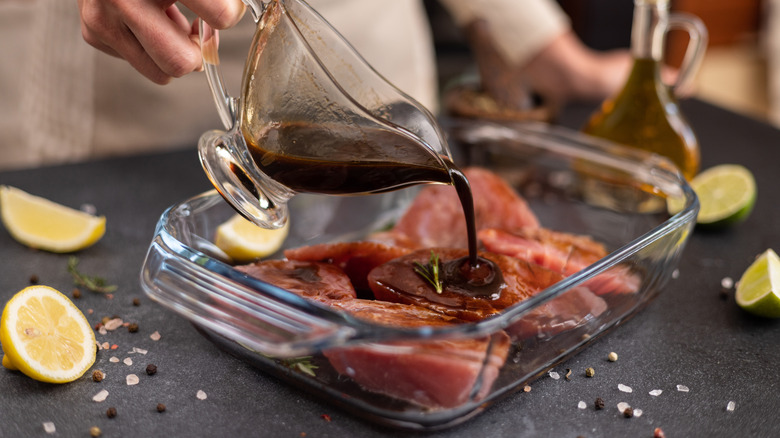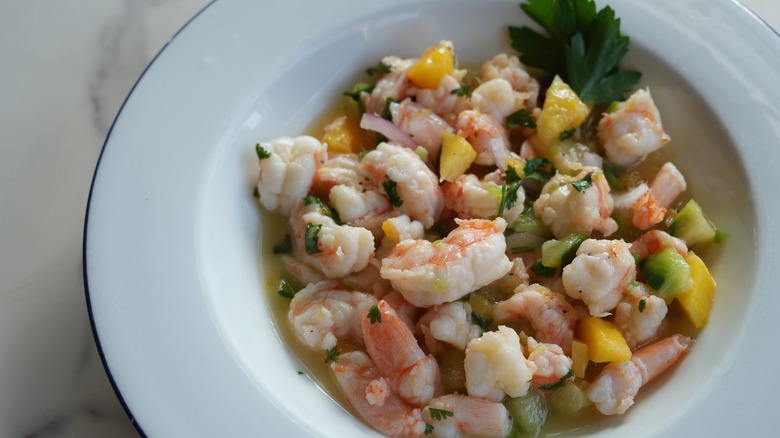You're Likely Making This Marinating Mistake When Grilling Seafood
Grilled seafood makes a nice change from the usual steaks, chicken, and burgers, but there are a number of mistakes you can make with grilled seafood such as letting it dry out or stick to the grill. Cookbook author and gourmet tour guide Roberta Muir, who blogs at the Australian lifestyle website Be Inspired, suggests another major whoopsie: letting it sit too long in the marinade.
As Muir explained to The Takeout, "The flesh of seafood is more delicate than that of red meat, which means any acidic marinade will begin to denature the protein almost immediately, making it look cooked. For this reason, she suggested marinating both finned fish and shellfish for no longer than half an hour. If you don't feel that such a short soak will provide enough flavor, her advice is to use a non-acidic marinade. The only exception is if you're grilling cuttlefish, octopus, or squid. "Cephalopods," she said. "Are much firmer and can benefit from a longer marinade as it will tenderize them."
Yet another tip Muir had to offer was to wipe any residual marinade off the seafood before cooking it on the grill. "Otherwise, you risk it stewing in the liquid rather than searing and getting a nice grilled flavor."
What can you do with over-marinated seafood?
If you're used to marinating steaks overnight, you may have difficulty remembering to take your seafood out of the bath after just 30 minutes. What can you do if you go over on the time? If the seafood hasn't been in the marinade that much longer, it should be okay. In fact, some firmer types of fish can handle up to two hours of marinating. If the fish has been marinating all day, though, Muir suggested the best way to salvage it might be to serve it as ceviche, while over-marinated shellfish can be turned into aguachile. (Ceviche and aguachile, while different dishes, are both made with a raw seafood base.)
Since any lime or lemon juice used in the preparation isn't actually "cooking" the raw seafood, it's best to heed FDA guidelines and only eat seafood that's been previously frozen to avoid any potential parasites. Some finned fish may be labeled sushi or sashimi-grade, but there are no rules and regulations establishing the meaning of this term; it's mainly used for marketing purposes.
If the idea of eating it raw makes you uncomfortable, Muir says you can also use over-marinated seafood in a soup or stew. Fish chowder, shrimp bisque, and bouillabaisse are all fairly forgiving when it comes to texture. Because there are other elements at play, the too-soft seafood won't have to stand on its own.

